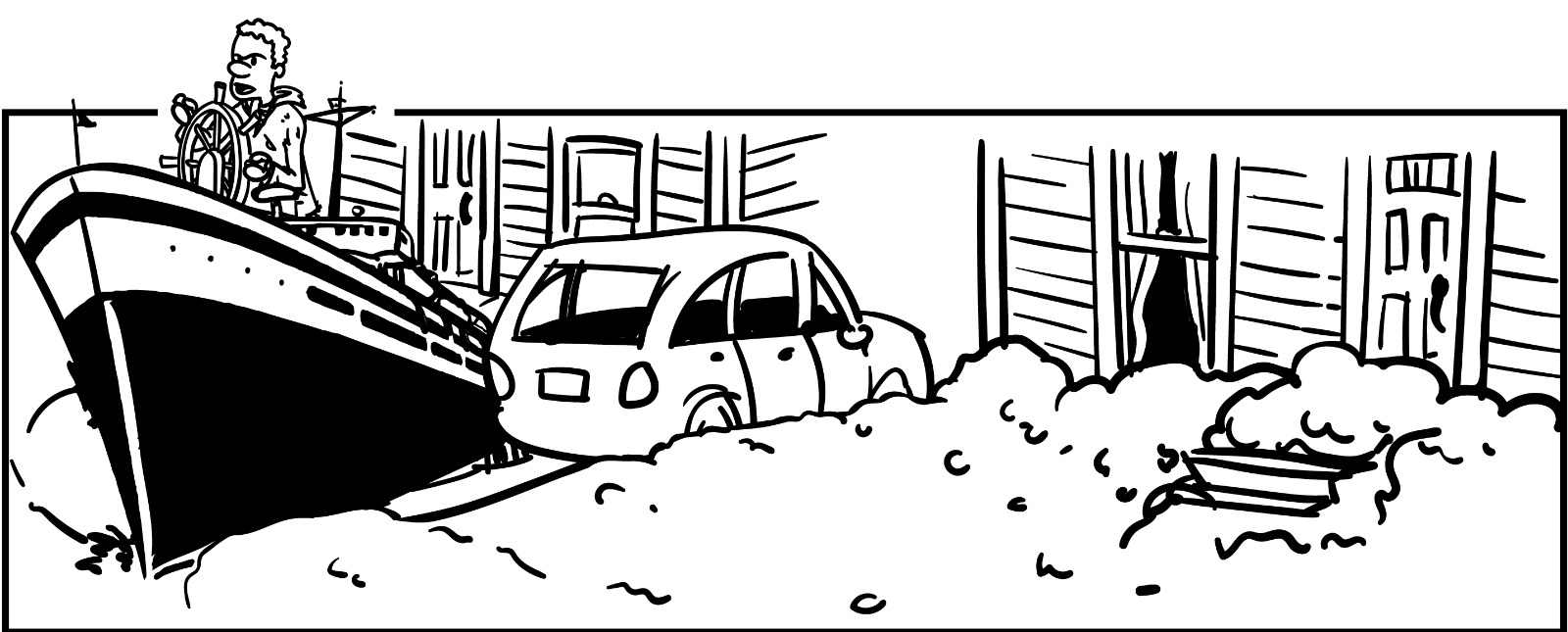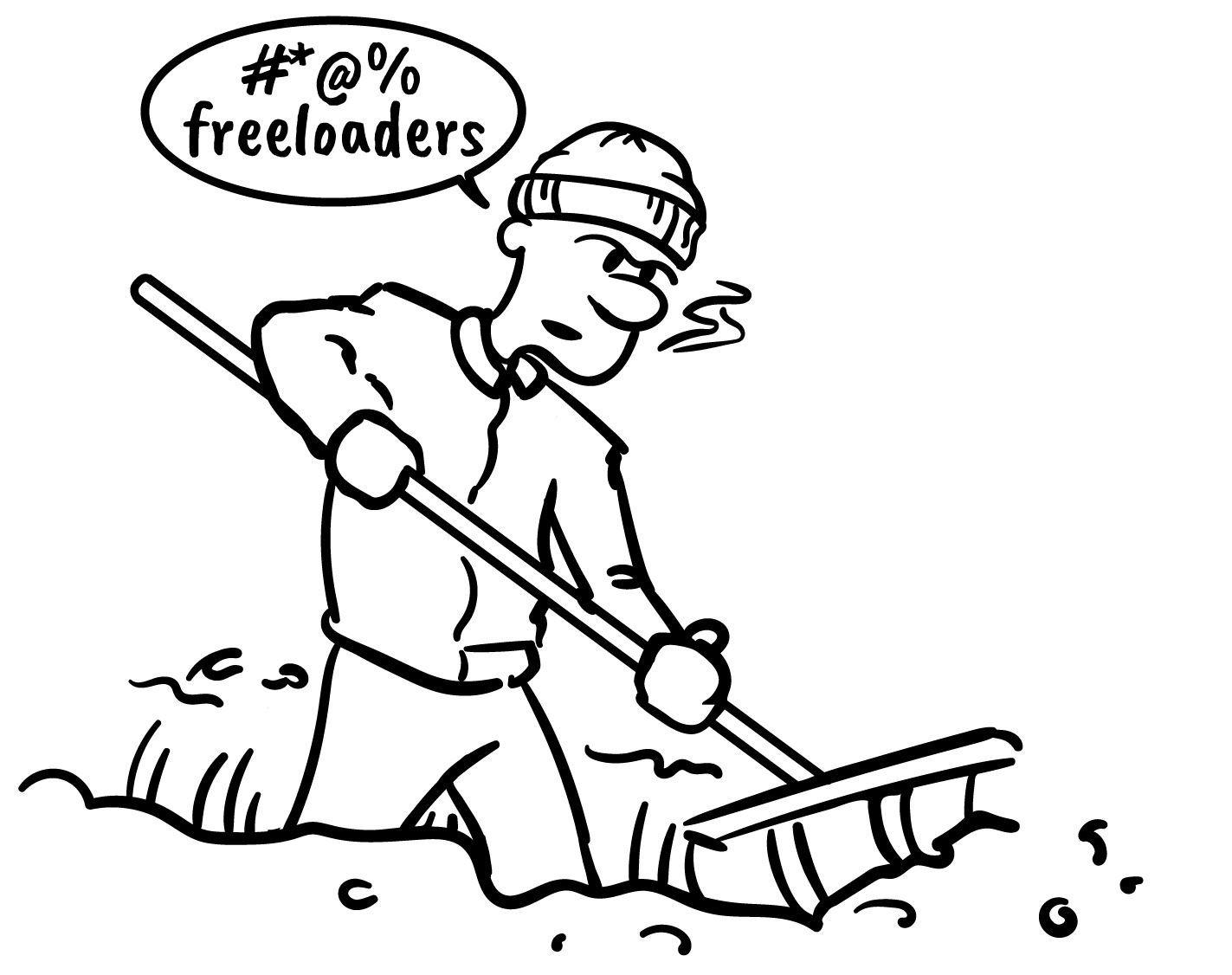Illustrations by @sammetzlerart

I live on the first floor of an old house in Rochester, New York. It’s been repurposed into two apartments, so I share a driveway with my upstairs neighbors. It snows a lot in Rochester, which means that the driveway has to be shoveled fairly often. You wouldn’t think that someone could mess up the construction of a driveway, but the layout is, in a word: horrendous. The problem is that there’s only one lane through which you can enter the two-lane driveway. Unfortunately, the left side, my side, is not aligned with the entrance. So, when I pull in, I have to immediately turn the wheel like a sea captain whose ship has veered off course in a storm. All of this is exacerbated when it snows, and the already narrow entryway becomes even more snug.

I could live with it if this was the only issue, but, here’s the thing—my neighbors don’t really shovel. And on the rare occasion that they do, they only clear their side of the driveway. Whenever I shovel, I have no choice but to do the shared entrance, along with their side, and mine. If this story made you feel a twinge of anger on my behalf, thank you, and congratulations—you’re human.
We are very good at keeping tabs on those who attempt to take advantage of us. This relates to something called reciprocal altruism. It’s a fancy way of saying you scratch my back, I’ll scratch yours… or else. The fact that I was the only one doing the “scratching” violated our universal notion of fairness. It unleashed a whole host of emotions in me, along with some expletive-filled rants directed at my slacking neighbors.
A sense of fairness is found across cultures, though we have different ideas about what that means in practice. Conservatives strongly endorse the idea that people should not be shielded from the consequences of their actions, or in the case of my neighbors, inaction. Nobody likes to have their efforts exploited, but conservatives really don’t like this. In their minds, you get out what you put in—that’s fair. This is known as proportionality. Liberals agree with proportionality, but not as enthusiastically. They tend to think of fairness in terms of equality, sometimes at the expense of proportionality (i.e., socialism). A less extreme example would be those who advocate for a higher minimum wage, and any other policies aimed at making society more equal. Like many issues, this is a spectrum— not all liberals are socialists nor all conservatives cut-throat capitalists.
In general, I find that I have less-maddening conversations with conservatives when I emphasize the “get out what you put in”/karma angle of fairness. (This is the advice of Professor Jonathan Haidt, the creator of Moral Foundations Theory). For their part, conservatives would do well to remember that equality matters, too—and that liberals will frequently think of fairness in those terms. Of course, all of this assumes that you’re even willing to consider another person’s concept of “fair.”
We may have different ideas about fairness and which tax rates or wages are reasonable, but we can all agree on this much: it’s time for my neighbors to start shoveling.
*For a deeper dive into the differences between proportionality and equality, start here


.png)